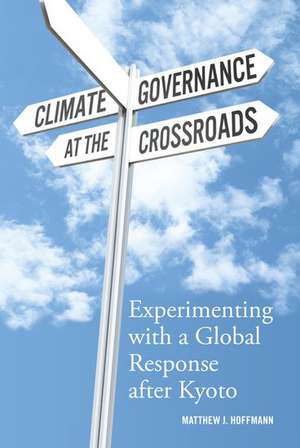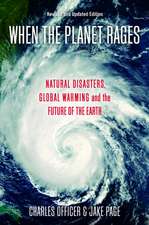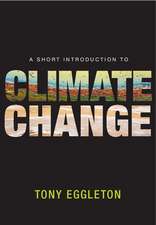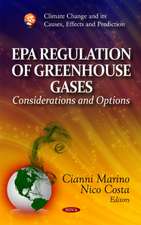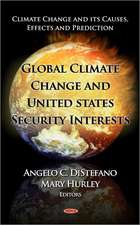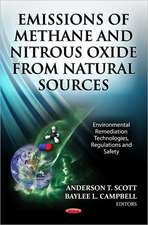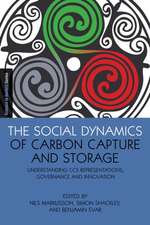Climate Governance at the Crossroads: Experimenting with a Global Response after Kyoto
Autor Matthew J Hoffmannen Limba Engleză Paperback – 24 mai 2012
Preț: 234.74 lei
Nou
Puncte Express: 352
Preț estimativ în valută:
44.92€ • 46.90$ • 37.17£
44.92€ • 46.90$ • 37.17£
Carte tipărită la comandă
Livrare economică 24-31 martie
Preluare comenzi: 021 569.72.76
Specificații
ISBN-13: 9780199922611
ISBN-10: 0199922616
Pagini: 240
Dimensiuni: 155 x 234 x 15 mm
Greutate: 0.34 kg
Editura: Oxford University Press
Colecția OUP USA
Locul publicării:New York, United States
ISBN-10: 0199922616
Pagini: 240
Dimensiuni: 155 x 234 x 15 mm
Greutate: 0.34 kg
Editura: Oxford University Press
Colecția OUP USA
Locul publicării:New York, United States
Recenzii
The perennial quest for a seamless international bargain on climate change has yielded to a far more complex set of climate governance initiatives around the world. Matthew Hoffmann takes a fresh look at this ever-expanding arena of public policy and thoughtfully explores early lessons and possible next steps. This book represents a valuable scholarly contribution and provides an important public service.
Growing concern about the impacts of climate change, coupled with frustration at the lack of progress in intergovernmental climate negotiations, has motivated numerous subnational governments and non-state actors to launch experiments with alternative approaches to climate governance. This important book provides the first systematic assessment of these initiatives. Focusing on the experimental governance system, it not only sheds light on ways forward regarding climate change; it also adds to our understanding of a trend of fundamental importance to the pursuit of governance more generally.
Matthew Hoffman brings light to the darkening literature of climate change. He shows that, while negotiations at the international level have stalled, there is a multitude of promising governing efforts taking place in the municipal, corporate and nongovernmental sectors. Seen through Hoffman's incisive analytical lens, we can appreciate such 'experiments' as grounds for hope. If you care about and want to respond positively to climate change, read this book!
This timely, jargon-free book may be transformational by stimulating new perceptions of climate change policy dilemmas. Understanding this universe of climate governance experiments may help activists and scholars move toward climate change solutions rather than an abyss of ineffective responses. Highly recommended.
Growing concern about the impacts of climate change, coupled with frustration at the lack of progress in intergovernmental climate negotiations, has motivated numerous subnational governments and non-state actors to launch experiments with alternative approaches to climate governance. This important book provides the first systematic assessment of these initiatives. Focusing on the experimental governance system, it not only sheds light on ways forward regarding climate change; it also adds to our understanding of a trend of fundamental importance to the pursuit of governance more generally.
Matthew Hoffman brings light to the darkening literature of climate change. He shows that, while negotiations at the international level have stalled, there is a multitude of promising governing efforts taking place in the municipal, corporate and nongovernmental sectors. Seen through Hoffman's incisive analytical lens, we can appreciate such 'experiments' as grounds for hope. If you care about and want to respond positively to climate change, read this book!
This timely, jargon-free book may be transformational by stimulating new perceptions of climate change policy dilemmas. Understanding this universe of climate governance experiments may help activists and scholars move toward climate change solutions rather than an abyss of ineffective responses. Highly recommended.
Notă biografică
Matthew J. Hoffmann is Associate Professor of International Relations in the Department of Social Sciences at the University of Toronto Scarborough and in the Department of Political Science at the University of Toronto. He teaches and pursues research on climate change politics, global governance, multilateral treaty-making, complex systems, and international organization. Hoffmann is the author of Ozone Depletion and Climate Change: Constructing a Global Response and coeditor with Alice Ba of Contending Perspectives on Global Governance: Coherence, Contestation, and World-Order.
